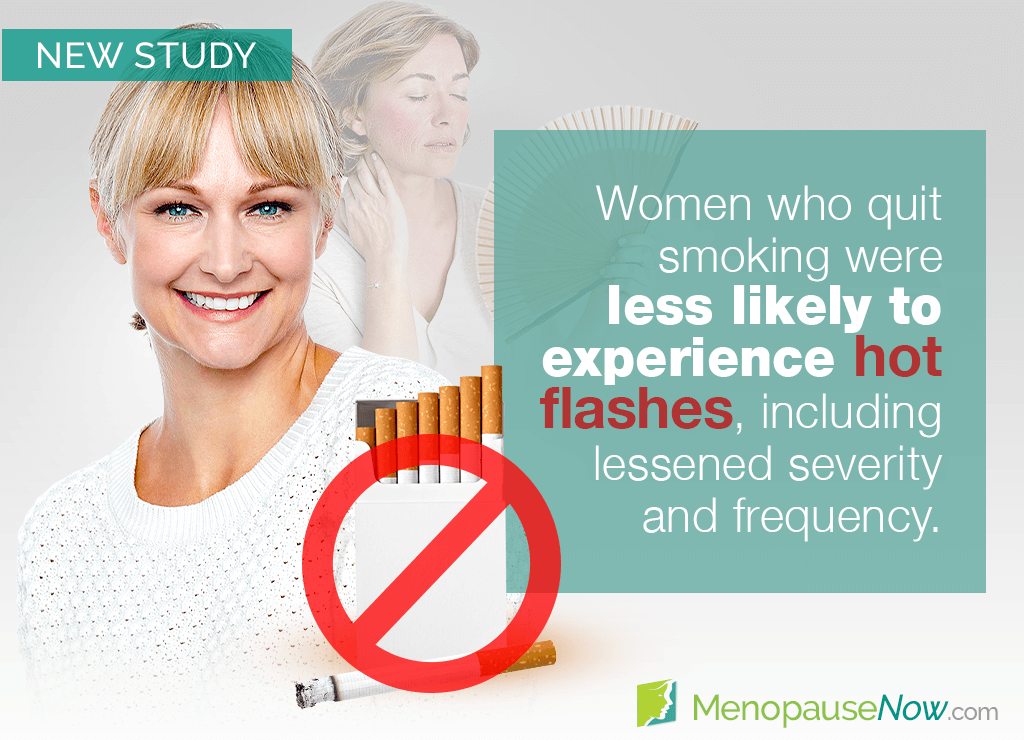While the fact that “smoking is bad for you” is virtually known by everyone, chances are that most menopausal women do not know how smoking affects their symptoms. In this research study from the University of Illinois, researchers shed light on the effects of quitting smoking on hot flashes during the menopausal transition.
Study Design
In their analysis, researchers examined existing data from a cohort study done a few years earlier on 761 menopausal women between the ages of 45 and 54.
Women were followed for up to seven years, reporting the severity and frequency of their hot flash episodes over time. Their smoking history was also recorded and used to analyze symptom trends in women who quit smoking and those who did not.
Study Findings
From 2,275 observations researchers analyzed, they found that women struggling with hot flashes were more likely to be current or former smokers than those who did not have hot flashes.
In comparison to women who continued smoking, researchers have found that women who quit smoking are less likely to experience hot flashes, including being less likely to have severe and frequent hot flash episodes.
Those benefits were more prominent in women who quit smoking for longer than five years.
What Does It Mean?
The results of this study add to an existing body of evidence on the harmful effects of smoking on human health.1 They also support several previous studies that found the link between smoking and hot flashes, among other menopause symptoms.2
Smoking increases not only the risk of having hot flashes in the first place, but also worsens their severity and frequency. The good news is that quitting smoking can substantially lessen these negative effects.
In light of these findings, menopausal women are especially encouraged fight their nicotine addictions. Help is available through one's healthcare provider, local support groups, or free hotlines.
Sources
- Maturitas. (2015). Does quitting smoking decrease the risk of midlife hot flashes? A longitudinal analysis. Retrieved December 2, 2020 from https://pubmed.ncbi.nlm.nih.gov/26149340/
Footnotes:
- CDC. (n.d.). Health Effects of Cigarette Smoking. Retrieved December 2, 2020 from https://www.cdc.gov/tobacco/data_statistics/fact_sheets/health_effects/effects_cig_smoking/index.htm
- American Journal of Public Health. (2006). Longitudinal analysis of the association between vasomotor symptoms and race/ethnicity across the menopausal transition: a study of women's health across the nation. Retrieved December 2, 2020 from https://pubmed.ncbi.nlm.nih.gov/16735636/

